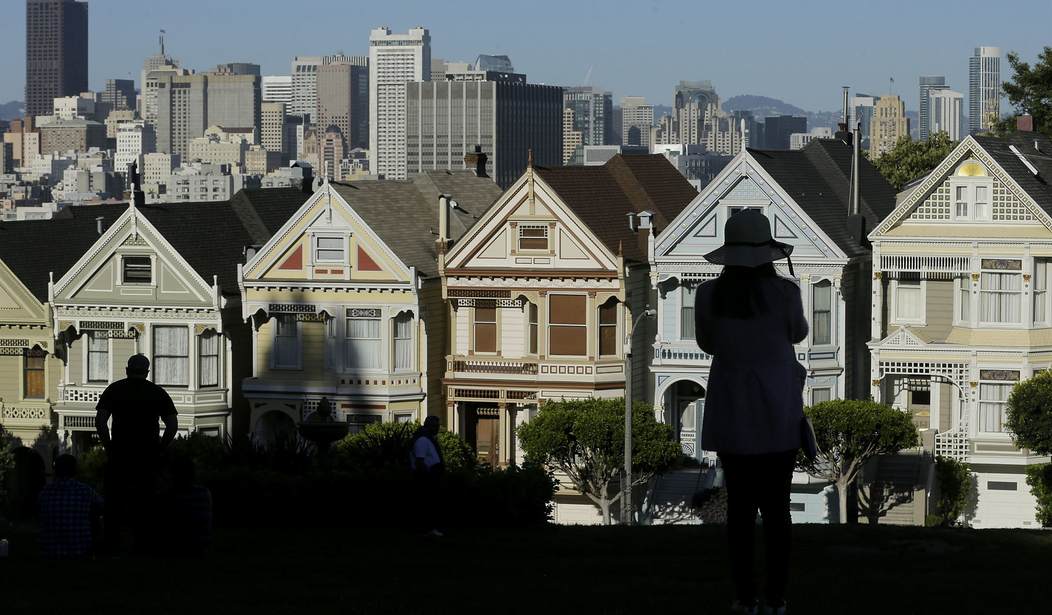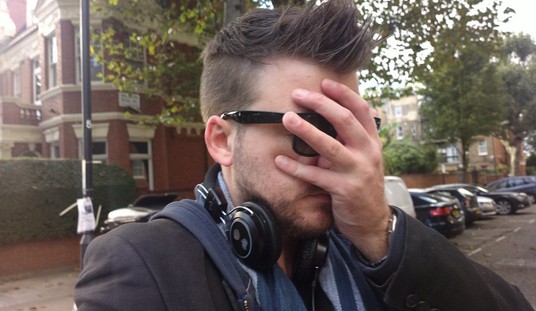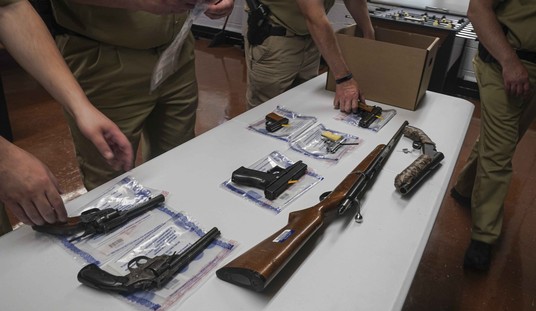During the push to “defund the police,” San Francisco was knee-deep in things. In fact, while few places actually reduced police funding, they did.
Eventually, due to soaring crime, the city reversed that. They really didn’t have a choice at that point.
However, it doesn’t seem to be helping. Why? Because the police don’t seem interested in actually arresting anyone.
After weeks battling the bewildering bureaucracy of San Francisco’s criminal justice system, Danielle Kuzinich finally has some answers in the strange case of the thrashed parklet and the do-nothing cops.
Just before dawn on Dec. 31, firefighters witnessed a man wrecking the charming parklet outside the San Francisco Wine Society in the Financial District and notified police. Security camera footage from a nearby hotel shows police arriving, chatting with a firefighter, talking to a man sitting next to piles of parklet debris and leaving. It then shows the man continuing to trash the area.
Now, a man police believe is the culprit is in jail — busted only because he allegedly went on to commit more vandalism days after the Wine Society mess. But the episode spotlighted an issue bigger than one arrest: a pattern of some officers on the San Francisco force seemingly uninterested in dealing with crime.
Numerous readers shared stories of police indifference after reading last week’s column about Kuzinich’s frustrating experience — and how it adds to their feeling that San Francisco city government, and its criminal justice system in particular, is broken.
They had questions. Is property crime in some ways allowed in our city? Are police on an unofficial strike or work stoppage?
In a visit to The Chronicle newsroom Tuesday, Police Chief Bill Scott promised that’s not the case.
“I can confidently say that’s not happening,” he said. “I get a report every morning of last night’s activities, and there’s a lot of great work being done.”
Not officially, in any case.
However, if this is a recurring problem, there’s probably a reason for it. Scott knows this, too.
He acknowledged, though, that the department has “serious morale issues” because of understaffing, intense scrutiny amid the police reform movement and tussles with District Attorney Chesa Boudin. Still, he said, that’s no excuse for not addressing crime.
“Despite the reason that an officer may be in that mental state where they might think it’s not a big deal for them to bother with it, it is a big deal,” Scott said. “And when they don’t do their job, I have to hold them accountable.”
The problem, though, is that they were thrown under the bus for something that didn’t even happen in their city.
Following the death of George Floyd during an arrest, departments all over the nation felt the heat. A few, like San Francisco, saw their funding cut by politicians who were essentially blaming them for something that happened in Minneapolis.
As a result, one shouldn’t be surprised when the police are less inclined to engage with someone committing a crime.
After all, any criminal offense can result in someone dying under certain circumstances. Is it any wonder that these guys would opt not to do much?
I’m not excusing it, mind you, just understanding it. They’re paid to do a job and they’re supposed to do it. Failure to do that should result in some degree of punishment. That’s simply not a matter up for debate in my book.
But the leadership in San Francisco needs to accept their own role in this. They need to understand that while the officers on the street need to step up, they’re not doing so as a result of their own actions.
Police officers aren’t mindless myrmidons who simply do as they’re told without thought or feeling. They’re people who are trying to do the best they can in most cases, and they don’t appreciate being vilified by their own leadership.








